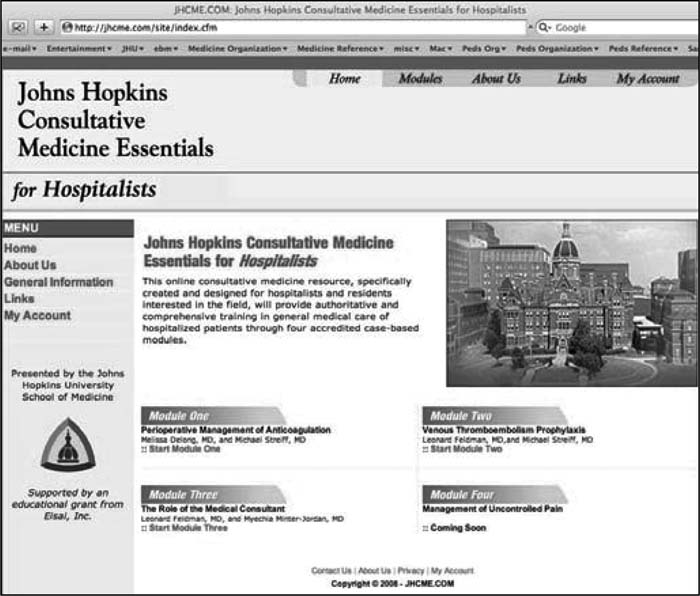Background:
The 2005‐2006 Society of Hospitalist Medicine survey documented the growth of the specialty to approximately 15,000 hospitalists in 2006. As the hospitalist inpatient role has grown, other specialties have turned to hospitalists for consultative services. According to the survey, most hospitalists provide medical consultation services. It is believed that “almost all hospitalists provide pre‐operative evaluation.” The ACGME requires a “consultative experience” for internal medicine residents that “must have a structured clinical experience to act … as consultants to physicians in other specialties.” The lack of a defined curriculum has left residents and hospitalists with inadequate formal exposure to consult medicine issues. A survey of hospitalists in 1998 supports that assertion. The respondents reported that perioperative consultation is an important topic for their current practice but was underemphasized in their residency training. A recent systematic review concluded that “CME appears to be effective at the acquisition and retention of knowledge.” The Internet now allows for online dissemination of curricula and CME. An evaluation of an ambulatory medicine Internet‐based curriculum for internal medicine residents showed that this form of education can improve knowledge.
Purpose:
To report the creation of an innovative online consult medicine curriculum for hospitalists that includes free CME available on JHCME.com
Description:
The curriculum currently consists of 4 interactive modules: the Role of the Medical Consultant, Perioperative Management of Anticoagulation (module 1), Venous Thromboembolism Prophylaxis (module 2), and Management of Uncontrolled Pain. Each module includes a pretest/didactics/posttest format. The didactic section introduces topic summaries only after learners answer a multiple‐choice question on the subject. Pop‐up message screens provide feedback on the answers selected by the learner. Between 6 and 8 more modules will be added in 2008.
Conclusions:
Of those who have registered for the curriculum, 82% self‐identified their specialty as internal medicine, 6% as family practice, and 4% as IM/Peds. Preliminary data indicate improvement in knowledge. Module 1 was completed by 166 learners. Posttest scores were 22% higher than pretest scores. Module 2 was completed by 61 learners. Again, posttest scores were 13% higher than the pretest.
Author Disclosure:
L. Feldman, Advanced Studies in Medicine (ASiM), produced the Web site and awarded me an honorarium; Eisai, Inc., educational grant for the Web site to ASiM.

